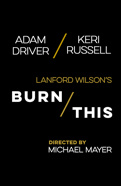Linked by Larry: Lou Liberatore and Brandon Uranowitz Dig Deep on the Burn This Role That Turned Into a Ticket to the Tonys

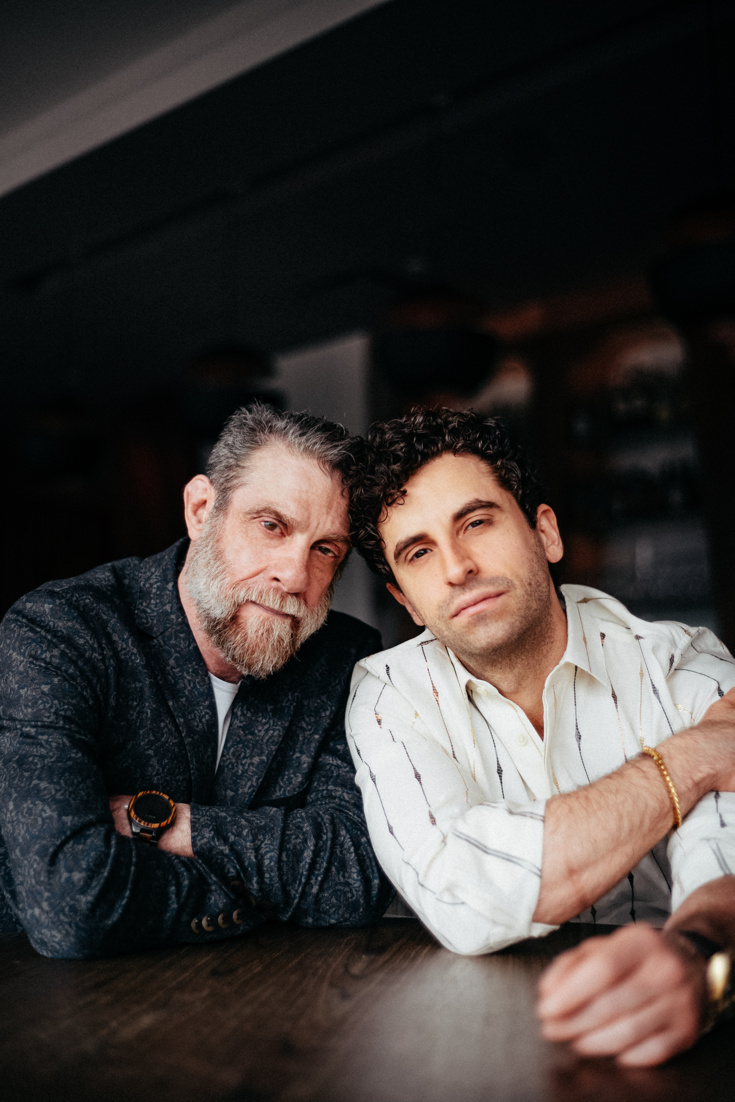
(Photo by Emilio Madrid-Kuser for Broadway.com at Dear Irving on Hudson at Aliz Hotel)
Burn This is the sexy story of the intense collision of two grieving lovers—a hot-headed beast of a man and a soulful, artistic woman. Or is it? Turns out the late Lanford Wilson’s popular play may actually be more about the wise-cracking gay guy in the next bedroom.
When it premiered on Broadway in 1987, fresh-faced newcomer Lou Liberatore came close to stealing the show from John Malkovich, the box office draw giving a dangerous "must-see" turn as Pale, and Broadway newcomer Joan Allen (who went on to win a Tony Award) as Anna. By all accounts, Liberatore had the audience at the Plymouth Theatre in the palm of his hand, and received a 1988 Tony Award nomination for his turn.
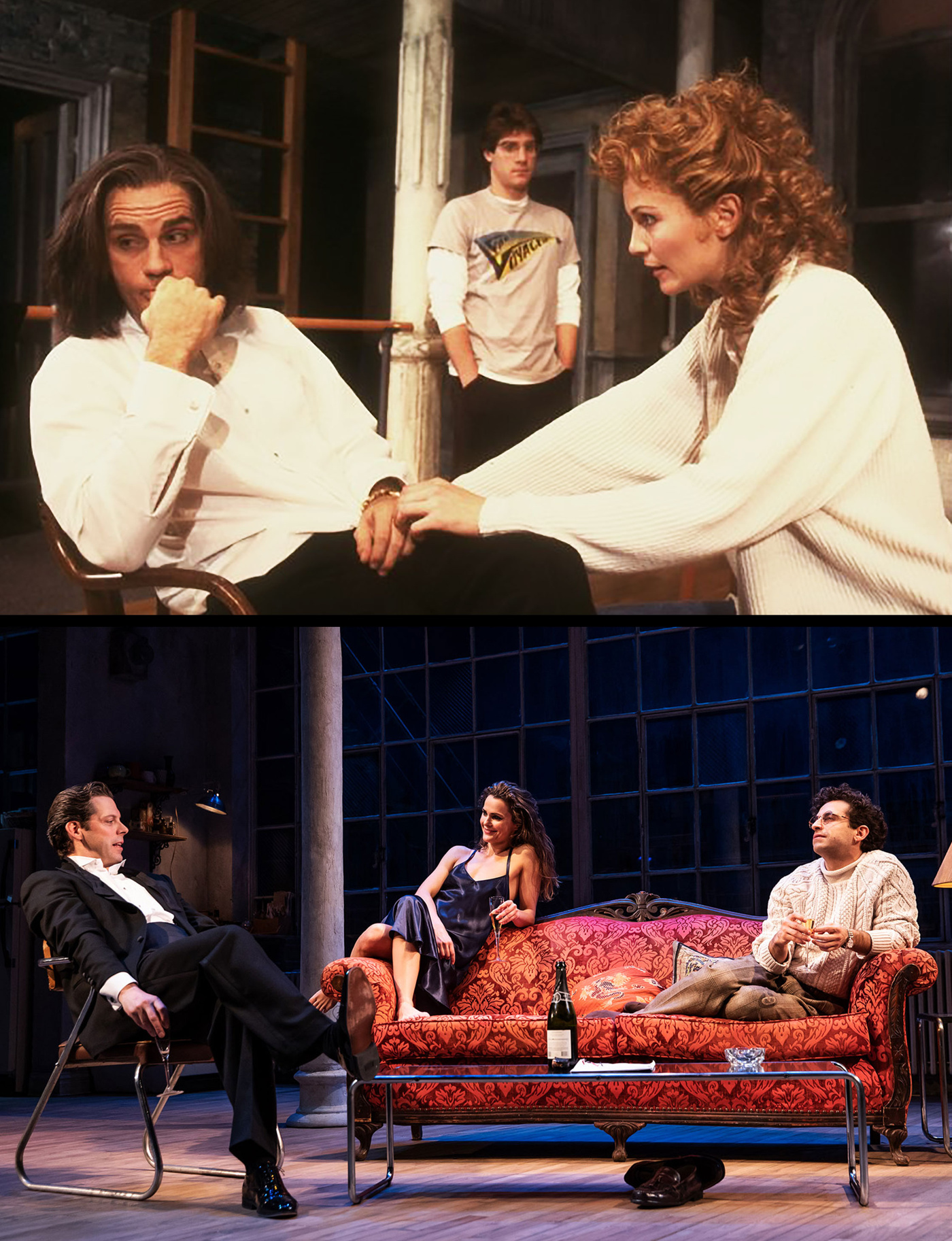
(Photo by Martha Swope/Billy Rose Theatre Division, New York Public Library);
Bottom: David Furr, Keri Russell and Brandon Uranowitz in Burn This
(Photo by Matthew Murphy)
Thanks to playwright Lanford Wilson’s hilarious, foul-mouthed monologues about the parking situation in New York City, the role of Pale has become a favorite for wannabe Brandos, Pacinos and Malkovichs. And established actors have sunk their teeth into it, too: Eric Roberts replaced Malkovich on Broadway, both Ed Norton and Peter Sarsgaard did it off-Broadway in 2002, Jake Gyllenhaal flirted with a Broadway run, and now Adam Driver has earned raves, and a Tony nom, for the current incarnation at the Hudson Theatre.
But unlike Pale, Larry is about the unspoken. Clashing with Driver in the part is Brandon Uranowitz, an established name on Broadway. Since he was a toddler when Burn This premiered, Uranowitz had the challenge of digging into the life of a gay man removed from his own experience, whereas Liberatore was organically playing what he knew. No cause for concern, though, as Uranowitz excels and followed Liberatore in landing a 2019 Tony nod for playing Larry, marking his third nomination in five years—and first for a play.
To toast both actors’ success in the part, and the return of Wilson’s beautiful heartbreaker of a drama, Broadway.com brought Uranowitz together with Liberatore (who can currently be seen off-Broadway in the new play God Shows Up) for a fascinating talk about all things Larry.
AN OPENING NIGHT HELLO
Although Uranowitz obviously knew of Liberatore's turn as Larry, and Liberatore had discussed his new counterpart with friends (more on that later), they didn't meet face to face until the Burn This bowed in April.
LOU LIBERATORE: We met on opening night.
BRANDON URANOWITZ: Although you had seen it once before.
LIBERATORE: I did. A friend had a ticket and I was teaching [an acting class] that night, which went until eight. So like, in the middle of some woman’s monologue, I was like, “That was great. Beautiful. Gotta go!” [Laughs.] It was just two blocks away, and I ran over.
URANOWITZ: [Director] Michael Mayer told me that you were there. Afterwards, thank god.
LIBERATORE: It was wild because I had never seen the play. I listened to it tons backstage and, you know, watched it in rehearsals, but I’d never seen it. I really loved it—they really did a wonderful job. And it’s great that Lanford’s onstage again. That’s really what I was first and foremost excited about. And the play still lands, it really does.
URANOWITZ: I think it’s always going to land.
LIBERATORE: I do, too.
URANOWITZ: Even though it’s definitely a product of its era and all the political undercurrents, it’s really about these four people just talking to each other and relationships.
LIBERATORE: And everyone’s at a crossroad in the play. Things are changing, and they don’t know where they are at the moment.
URANOWITZ: They’re just trying to live bigger, better lives. And I like that… it’s about the human experience. That will live forever. It landed 30 years ago, and it’ll land 30 years from now, I think.
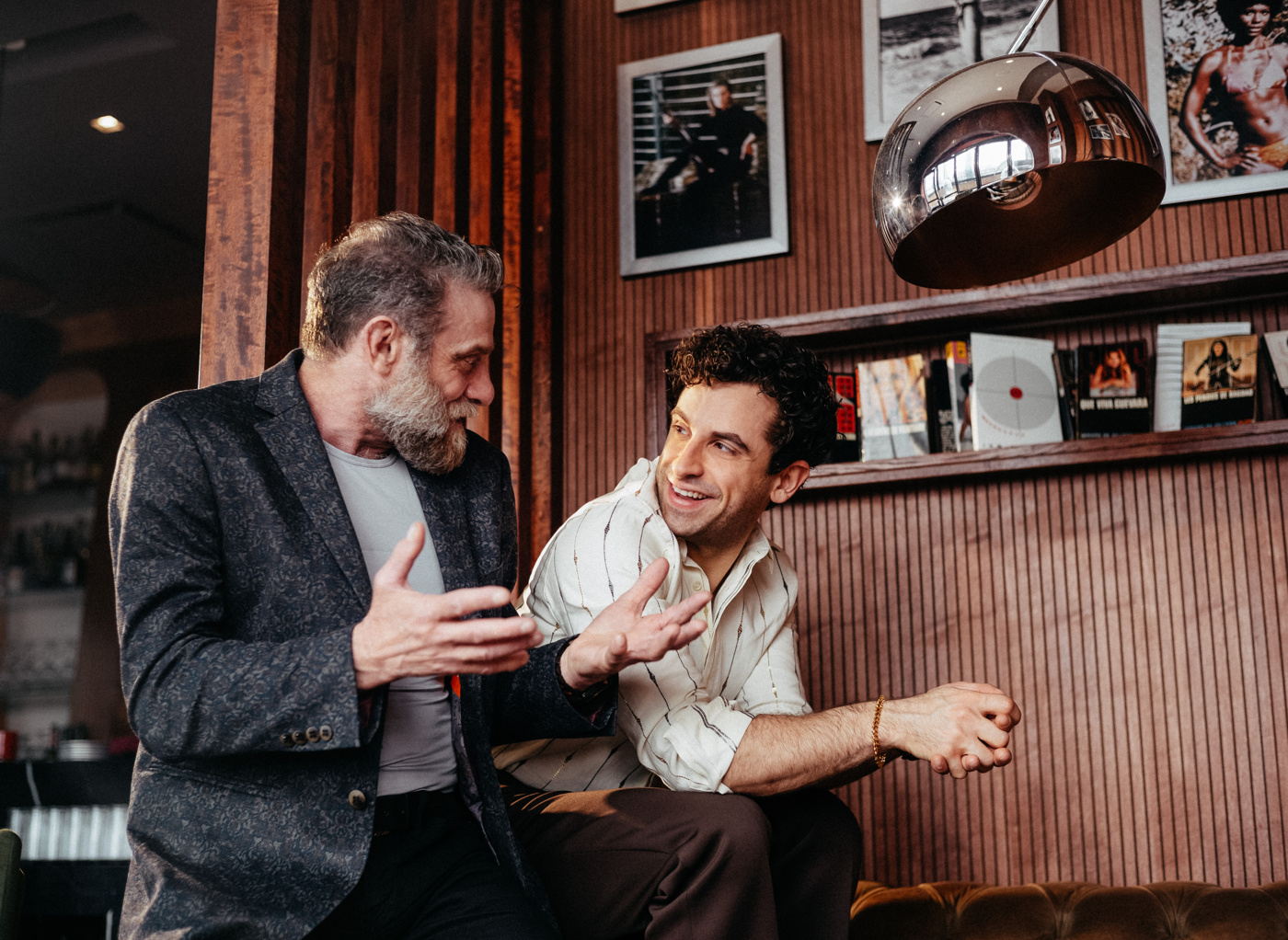
LARRY'S WORLD
Burn This opens in the loft apartment of Larry and Anna (Keri Russell in director Michael Mayer’s Tony-nominated Broadway revival), who are mourning their shared roommate and friend Robbie, a brilliant gay dancer who has just died suddenly alongside his lover in a freak boat accident. An advertising executive, Larry is a funny and warm confidant to Anna.
URANOWITZ: I knew Lanford Wilson’s work pretty well, but I didn’t know Burn This. I mean, I knew Pale’s monologues from acting classes, but I never did them. I didn’t know about Larry. I wasn’t even done with reading the first page and I was like, "Oh, I know exactly who this man is." Without being a stereotype and a trope, I think he speaks universally to all gay men who grew up having to protect themselves from the dangers of the world. As a gay man, I was like, "I get him."
LIBERATORE: When we first did it, we were in a time when you had to be closeted in certain ways. Not just the closet in terms of telling family or co-workers you were gay, but closeted about your feelings and your emotions. You had to find your safe havens. And Larry is lucky to at least be in a somewhat artistic occupation, being in advertising. So, there was a chance for him to be expressive, but at that time, he still had to be a little… pull things close to the vest. But when he’s home in the loft, with Robbie and Anna, he could be himself.
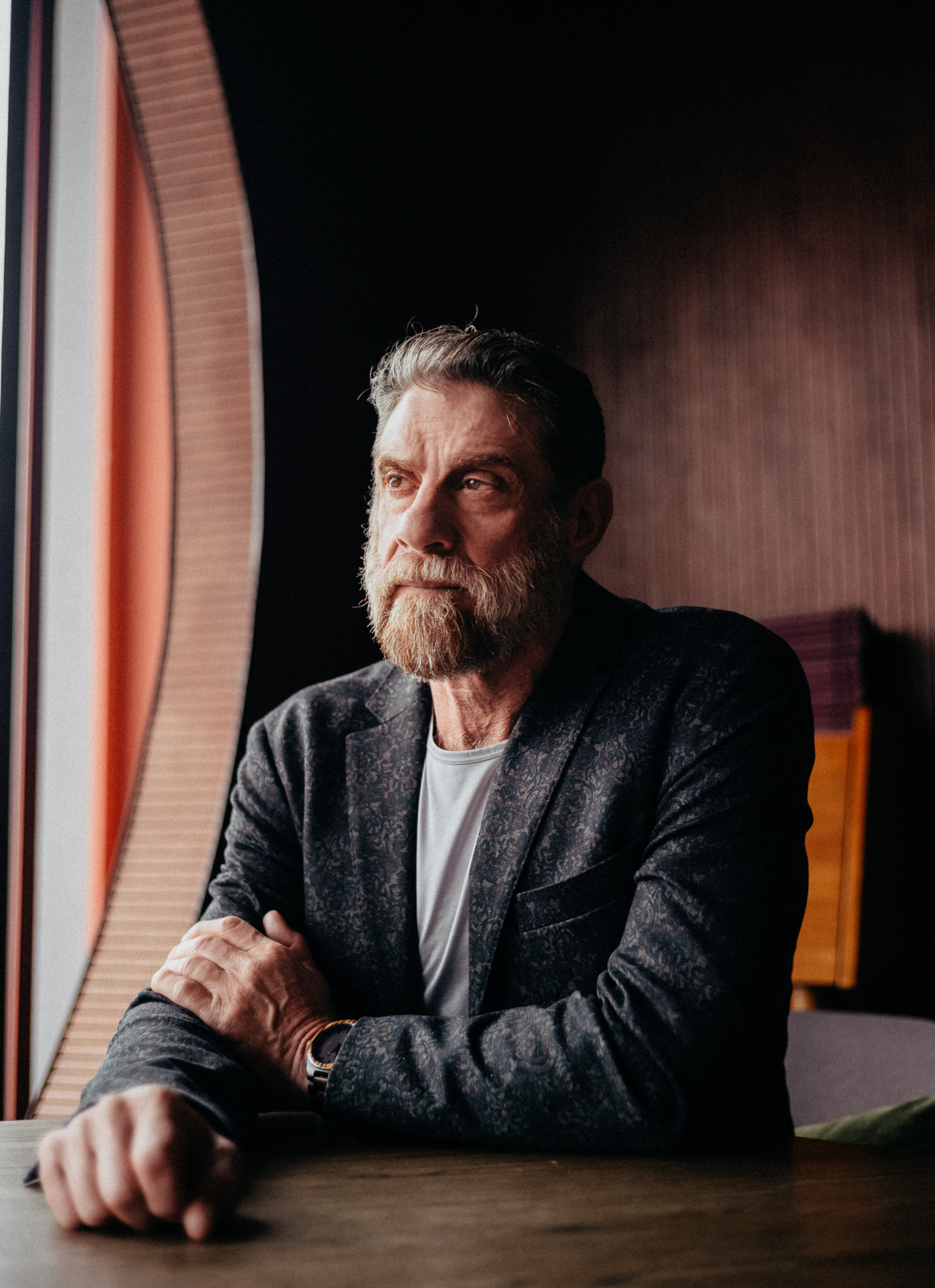
URANOWITZ: I feel like the play sort of opens with Larry trying to fill Robbie’s shoes.
LIBERATORE: Oh God. Yes, yes. "I’m here to support you. What do you need?" That’s who Larry is. Larry is a supporter.
URANOWITZ: And he’s a helper.
LIBERATORE: Larry keeps things in order, because things are in disarray.
URANOWITZ: He’s order in the chaos.
LIBERATORE: Very much so. In my opinion, it’s the best written role in the show, and the most fully dimensional character. Yes, he’s very funny and he has the comebacks, but that’s all his defense mechanism because the man is afraid. The man is living in the world of AIDS—at a time that was like, "look and don’t touch" because who knows where it’s coming from, who can get it. And you see a human being who happens to be gay, which was revolutionary at that time. It was rarely seen on stage before. I remember a review once from the Christian Science Monitor that was basically, "How dare this character be so comfortable and normal?" And I was like, "Yay!"
URANOWITZ: I love that.
LANFORD'S WAY
Although Larry is a major gay character in a play about life in New York City in the 1980s, written by a gay playwright, AIDS is never mentioned in Burn This. The topic had already been explored on Broadway, when William M. Hoffman’s As Is premiered three seasons earlier. But for Liberatore, who actually made his Broadway debut in As Is, Burn This is nothing short of an AIDS play.
LIBERATORE: It is Lanford’s AIDS play, without mentioning the word. He doesn’t have to be so on the nose. Lanford didn’t raise the flag and pump his fist about it. That wasn’t what he was about. He was still a Midwest boy. But he said it was his AIDS play—it spoke for itself.
URANOWITZ: At the heart of it, we’re dealing with the death of a gay man.
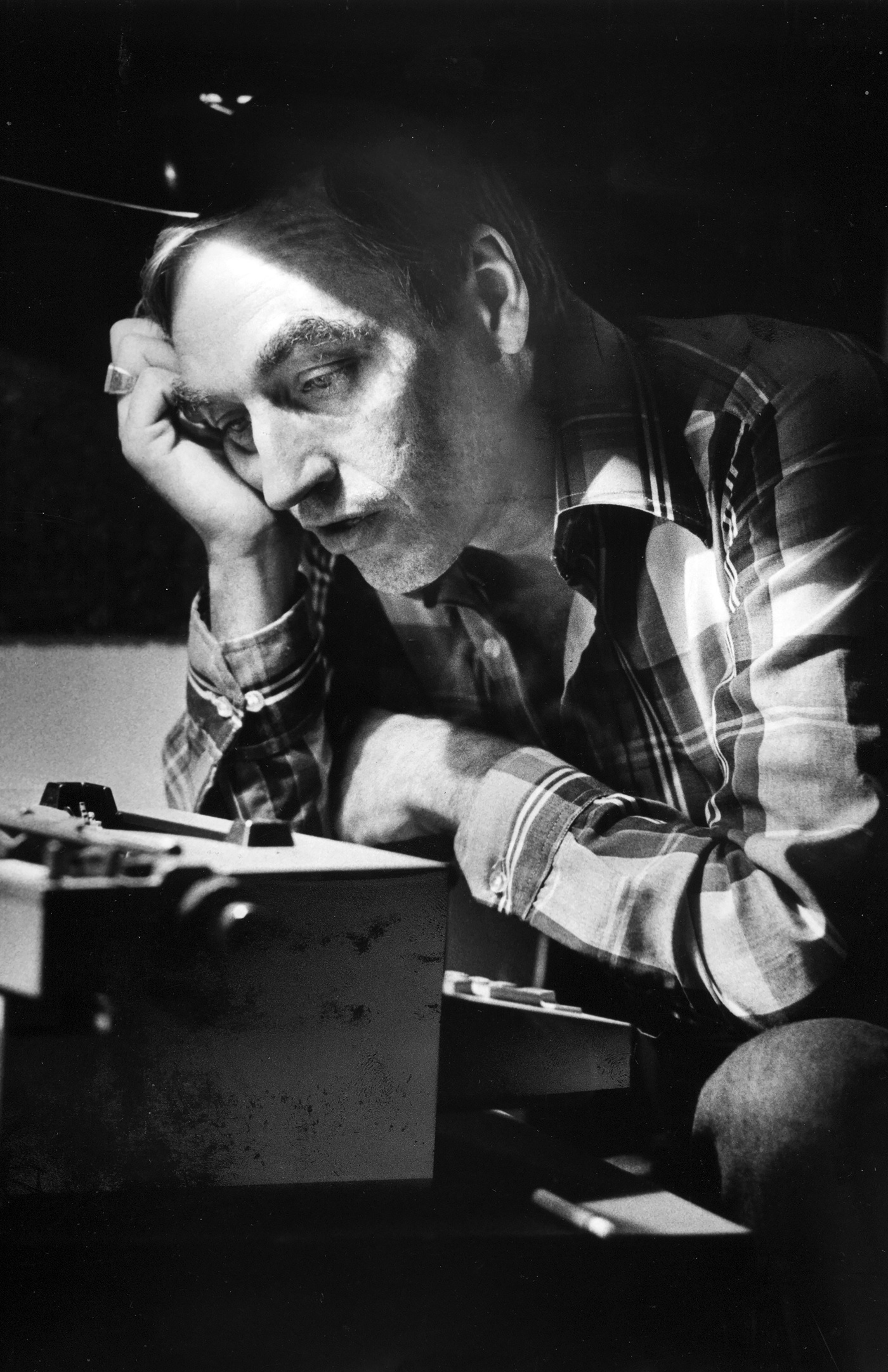
(Photo by Getty Images/
Bob Chamberlin for The Los Angeles Times)
LIBERATORE: I think the boat accident is AIDS.
URANOWITZ: A metaphor.
LIBERATORE: Yes, because it’s destructive and gruesome…
URANOWITZ: And sudden.
LIBERATORE: And it was a gay couple that got killed. Boom. They were in the artistic world, and their lives were cut short and killed by the boat. That’s exactly what AIDS was. I think that’s how Lanford dealt with it. Again, without saying the word. The only time there was any sort of actual illusion is late in the scene with Larry and Burton, the line about the immune system. [In talking about his emotions for Anna, Burton says his anger towards her is "just my immune system defending me," to which Larry responds: "It’s a handy thing to have."]
URANOWITZ: Right, yeah.
LIBERATORE: Which is so powerful now, so much more powerful. But he doesn’t drive it home. He’s just using these characters and these situations to tell a story that they were living in dangerous times.
URANOWITZ: Do you think he did that to make it more palatable for audiences at the time?
LIBERATORE: I think it was just his style to underplay. He just wanted to present human conditions and everyday, relatable lives. He was never political, or one to scream and yell. Look at the gay characters in [Wilson’s 1978 play Fifth of July]. There’s nothing stereotypical about them. One’s a freakin’ farmer out in the Midwest, you know?!
URANOWITZ: Nobody did that.
LIBERATORE: Nobody!
URANOWITZ: People still don’t really do that. He blazed a trail that people still don’t really follow. It’s fascinating.
LIBERATORE: When we did the show originally, people were dying of AIDS and dealing with the repercussions—the hatred and discrimination and fear that was around. Larry is living in all of that. He’s lost tons of friends, so his lack of closeness and a relationship is by choice. "If I get close to someone, they’re going to die, they’re going to leave me." The idea of loss is everywhere around Larry.
KEEPING IT REAL
Both Liberatore and Uranowitz are openly gay, but from different generations. Whereas Uranowitz has been out of the closet since his first professional job (much has been made of the fact that Larry is his first major gay stage role), Liberatore rose up at a time when discussing sexuality with an interview subject wasn’t on the table for journalists. Despite coming of age in a more welcoming world, Uranowitz didn’t struggle with creating his take on Larry.
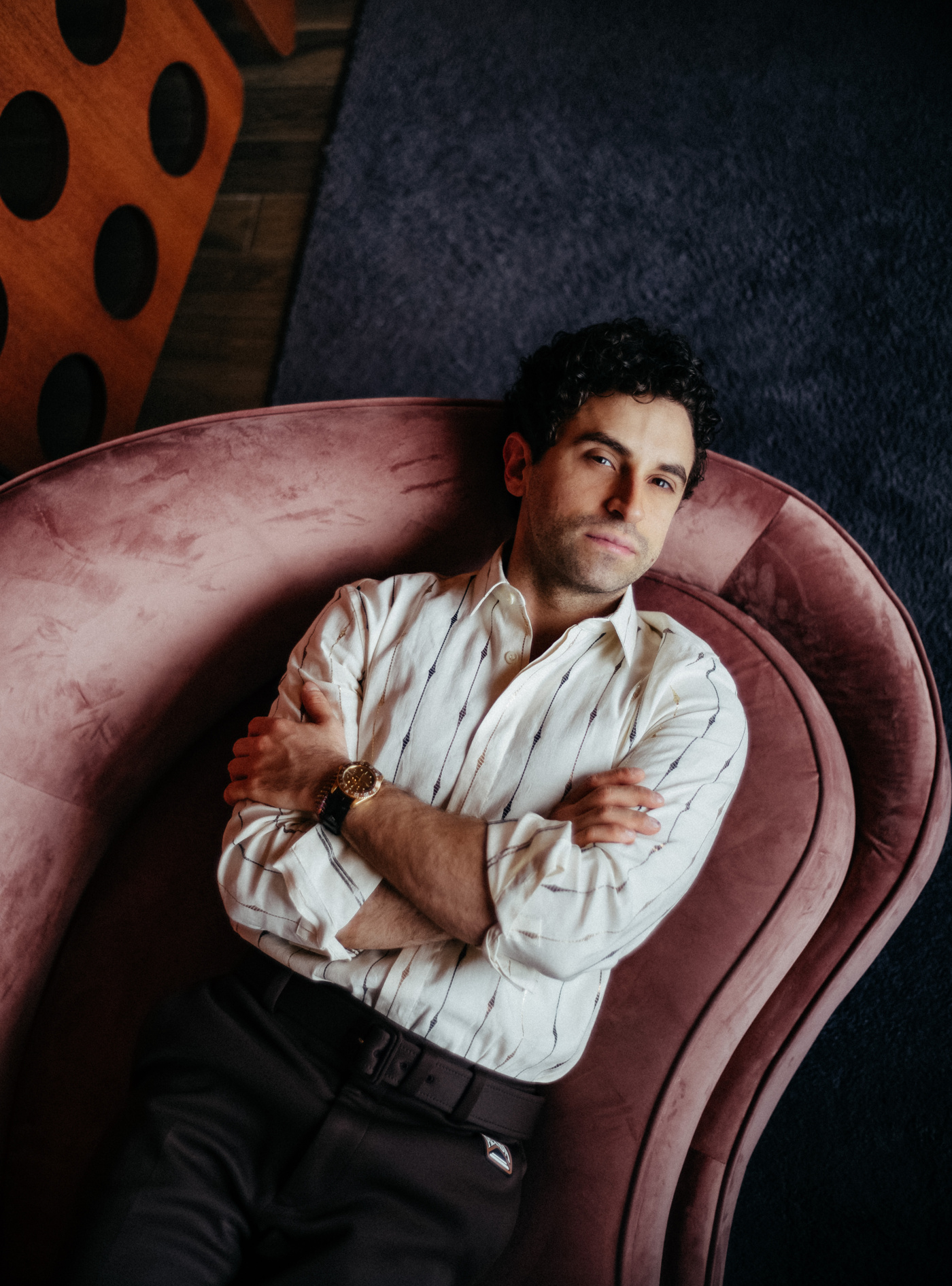
URANOWITZ: It’s really all in the text.
LIBERATORE: A well-written script is going to have all the answers.
URANOWITZ: There wasn’t a whole lot of work for me to crawl into his skin. This is a man watching his community die around him, and putting on this suit of armor of humor and wit to protect himself from homophobia, from AIDS, from all the dangers that surround him. The trap that I tried to not fall into was to make him purely a comedian.
LIBERATORE: That’s just who he is.
URANOWITZ: The humor and the wit was always, for me, a byproduct of his authenticity and his truth and his relationships. That’s how he navigates things; it’s not his motivation.
LIBERATORE: Right, it’s protection. His shield is his wit. And because he works in advertising, he has a wit, and an artistic sense about it.
URANOWITZ: He’s sharp and he’s quick.
LIBERATORE: He’s also keeping the party going a bit, if there’s a little down beat. He’s worried about silences—he’s afraid of silences and being alone. Gotta keep the party going, keep the joke going, have another drink…
URANOWITZ: For me, it was also about avoiding what became a trope after the original Burn This. This is now a very recognizable person in the zeitgeist. There’s Will and Grace. There’s Modern Family. There are Larrys all over the place now, which is great. I mean, I hope we can keep moving past sidekick roles into more substantial gay characters, where it’s not just about them being gay.
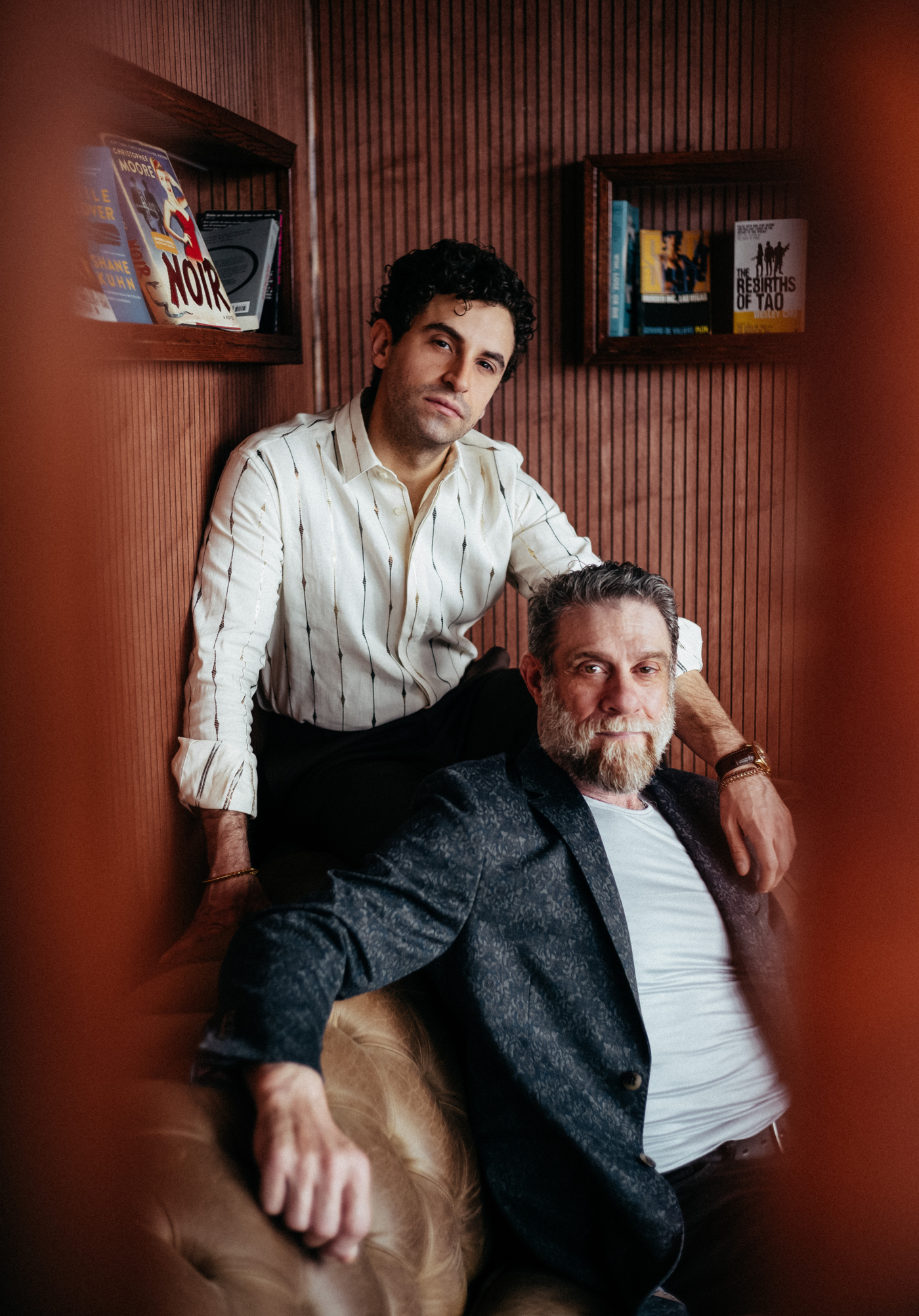
PASSING THE TORCH
They may be friends now—and will forever be linked by Lanford Wilson’s beauty of a role—but it wasn’t that long ago that Lou Liberatore clearly didn’t know Brandon Uranowitz from Adam.
LIBERATORE: I didn’t know Brandon personally. I knew some of his work—certainly thought he was great in Falsettos…
URANOWITZ: I heard a story from Michael Urie.
LIBERATORE: What?
URANOWITZ: Before you knew who I was, when they announced casting, Michael said you were like, "Oh, great! They’re gonna have a f**king straight guy play the role!"
LIBERATORE: [Laughs.] And then I was working with Ryan [Spahn, Urie’s partner and Liberatore’s co-star in off-Broadway’s Daniel’s Husband] and he was like, "Oh, no, no no! He’s gay, gay, gay, gay, gay!"
URANOWITZ: Sure am! Proud of it, bitch! [Laughs.]
Photographed by Emilio Madrid-Kuser for Broadway.com at Dear Irving on Hudson at Aliz Hotel. See Brandon Uranowitz in Burn This, playing through July 14 at the Hudson Theatre. | See Lou Liberatore in God Shows Up, playing an open run at the Actor’s Temple.
